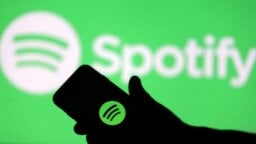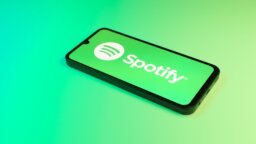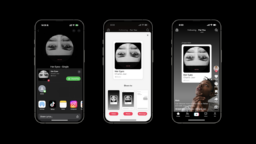Spotify‘s quickfire recent growth may have surprised many in the UK and US music business, but the Swedes will have seen it coming for years.
The streaming platform now boasts in excess of 60 million active users on its service around the world, 15m of which pay for its premium tier.
But in its home territory, far more important statistics are being thrown around. Like the one that shows Sweden’s domestic recorded music industry grossed €168m in 2013 – its highest for more than five years.
And the one which shows that streaming creates over 70% of the country’s music revenues. Of which local-brand-come-good Spotify propels the vast majority.
It’s for these reasons that Sweden and the rest of streaming-savvy Scandinavia are often seen as a ‘crystal ball’ by the bigger territories in music. They are markets that have embraced streaming and dumped downloads, yet created a healthy and growing industry for rights-holders.
Not that Spotify isn’t without its critics – especially around its ‘free’-friendly pricing structure and its payouts to artists.
Its most famous detractor, of course, has barely said the word ‘Spotify’ in public.
Taylor Swift’s decision to pull her catalogue from the service last year prompted a worldwide debate over the platform – but the resultant publicity may well have drawn millions to the music app.
Jonathan Forster is the exec in charge of Spotify in Sweden and across the Nordics and a trusted ally of the company’s founder, Daniel Ek.
As Forster (pictured right) explains to MBW, Spotify is more than happy to entertain the myriad arguments of how its model should change in future.
It just won’t let them distract from its No.1 mission: to get billions of people around the world streaming music – and doing so under a little green logo.

It always goes back to Daniel’s original vision, which is really about streaming rather than Spotify. He felt that everybody in the world would stream music and that would be good for artists.
We want to be in every market and on every relevant platform. As we stand today I think we’re in great shape; the mobile is a great form factor, but we’re also seeing Spotify Connect [which allows a phone to be used as a remote for playback on other devices] starting to take off, as well as interesting things happening in the car. That means our addressable market has grown a lot.
How much growth potential is there left in the Nordics for Spotify?
We think about this constantly, as you’d imagine. In the Nordics, record labels are now coming off the back of what could be their most profitable year ever; artists who were very sceptical about the service are now very much engaged and Spotify’s becoming a culturally-accepted thing that you see meshed not only into telcos but TV and radio.
Almost every young person in our target group is using it, so it would be really easy to think that either it’s done or we should focus on finding ways to get people to pay more.
The reality is, there’s still a big chunk of the Swedish population that loves music and is technical enough to pay their bills online but hasn’t yet realised how much they’d enjoy Spotify.
“We’re thinking about the quickest way to multiply our business by ten, rather than noodling around optimising what we can squeeze out of people in Stockholm. We’re more ambitious than that.”
Jonathan Forster, Spotify
We are working incredibly hard on that. Some of the things are fascinating; older users telling us they don’t want to use headphones, for instance. That makes us excited for the possibilities of Connect.
We hadn’t done focus groups historically, but given we weren’t talking about our own tastes, we thought we should ask people, and some of the results were astonishing. Lots of people in Sweden didn’t realise we were a Swedish company and were incredibly positive when they found out we were, so because of that we translated Spotify into Swedish.
I think we can more than double [audience size], and that’s before we investigate ideas about what future business models could be.
I certainly think the streaming market [in Sweden] will double.
When? I wouldn’t dare to say. But anybody who does their banking online which is almost 100% of Swedes, should also be able to listen to music online.

One thing Daniel (pictured) and his product team have always been really good at is being disciplined about what we don’t do as much as what we try. A great example of that is the way we like to partner with people.
It’s better to partner with a Shazam or Djay than think about trying to be good at something else. It’s about consistently looking at data and understanding the way people use our product. I think we’ve got a lot better at that as our design team has matured at looking beyond the data too; talking to users, essentially.
What about the car?
We think lots about the fact that there’s a certain beauty in pressing one button to get your music. We’d like Spotify to be that easy. We haven’t quite figured out how yet, but we’ll get there. We’ve announced relationships with BMW, Ford, Volvo – you can imagine we’re working through a list.
The experience has to be good. Then you look at a partnership like Uber, which I think folks from our company are still getting their head around; the fact that you can take your music with you in your car even when it’s not your car.
Some people seem to assume the reason you don’t have more price tiers is because you haven’t thought of it. That can’t be the truth, right?
Haha. There’s lots of things we haven’t thought of, but that’s not one of them! It’s dead easy: it’s about complexity versus simplicity. As we get more granular and complex we might optimise a little bit.
It could go both ways: should we be giving cheaper offers to OAPs to encourage them to use technology? Or should we define things people are willing to pay more for? I don’t argue that my relationship with music doesn’t tap out at £2.50 a week. I like it more than that and I’m willing to pay.
We’ve got 60 million users. Angry Birds has 500 million. [Thinking that way] is the quickest way to ten-X our business, rather than noodling around optimising what we can squeeze out of people in Stockholm. We’re more ambitious than that.

Why is ‘free or €9.99’ the best route forward for immediate growth?
Look, I’m not saying I’m 100% sure that it is the best. We’ve seen a lot of that external research that suggests €9.99 is too expensive – and certainly that price feels like a lot more to people in Spain than it does to people in Norway.
“Music isn’t a loss-leader for us. It’s all we do.”
Jonathan Forster, Spotify
At the same time, when I think about the value of the proposition of all of that music, €9.99 is such a good deal. We’ll continue to think about what the right price point is and how it’s communicated. But the reality is that the majority of the world still haven’t understood the concept of being able to stream music, and we need to make that happen in the simplest way possible.
People remain cynical that Spotify will ever turn a global profit – although you recently managed it in France and the UK. Will it happen?
Yes, but only time will prove it. I believe the potential of the streaming model has already been proven. There’s a long way to go for us as a company.
If I do the maths around the addressable market, and then I look at the billion dollars that we’ve generated this year… is it crazy to think streaming can have more users than Angry Birds? I don’t think so. That could multiply our revenue by ten. And that becomes a really significant amount for the music industry.
It’s not going to happen overnight; there’s very big economic and digital differences between Sweden and the Philippines, for example. But as an industry I think we should all be incredibly excited about it.
You’ve always paid 70% of income to rightsholders. There’s whispers that some services – notably Apple with Beats – are trying to lower that barrier. And others suggest it’s a core reason why streaming businesses struggle to turn a profit. Do you continue to be comfortable with the 70% payout?
Our focus has been about being able to offer a wonderful product with a functioning business model to as many users as possible. While we’re doing that we want to generate as much money for the music industry as possible.
We feel that our business should be able to operate at scale and we should be able to give the lion’s share to the music industry. What the actual perfect percentage number is, that’s for Will Page [Spotify’s Director Of Economics] or another expert economist to work out. But the critical thing from our perspective is that we’re investing in growth.
When we think about the potential of this market, we’re really just at the beginning. It’s growing so quickly. I think it would certainly be hard to pay any more than 70%.

What will be the key factors in Spotify being able to remain market leader once Apple and Google start ramping up their services?
People who use our products telling their friends that they should check it out too. That’s the big one. We also need to keep a sense of joy in the product – keep it simple and fun. And then it’s all of the other things, especially our commitment to ‘free’ and our willingness to invest to grow this market for the music industry.
Music isn’t just a loss leader for us – it’s all we do. We’ve always paid by the rules; we’ve licensed everything we’ve done. And it’s hard sometimes, because that doesn’t seem to be the way to get quick scale in the music industry. So we’re either really right, or we’ve been very naïve [laughs].
You’ve become a legitimised case study for the music industry, though. Rights-holders can point at you when negotiating with YouTube and say: they pay their licenses and are a worldwide business.
There are so many people in the music industry who’ve played a huge role in Spotify getting to where it is today and they don’t always get the credit they deserve. It’s hard to name them.
“We’re in a position now where other creative industries will be looking at the music industry with a bit of envy.”
Jonathan Forster, Spotify
I think we’re in a position now where the other creative industries will be looking at the music industry with a bit of envy. And anyone involved in making that happen should be really proud: the artists, the managers, the labels, the publishers, developers, licensing teams and ad agencies.
Artists are still looking at Spotify royalty statements with sad faces though. Why should they keep the faith with you?
There are relatively few legal, growing monetisation options for music. We are one of them. History tells me that artists have benefitted from our growth: we paid a billion dollars to the music industry [in 2013]. And we’re not done yet. There’s so much more we think we’re going to do.
Sometimes I think even the notion of ‘keeping the faith’ is a strange one; for decades, people have worked really hard to promote albums that didn’t sell. They’ve struggled for years without getting a record deal. We can connect you with so many fans – that has to be positive.

Firstly, the fact that there are 7 billion people in the world; so there’s 6.95 billion people who haven’t yet realised that the only thing between them and 25 million songs is the time it takes to download an app. That’s mind blowing.
We recently learnt about a project in Sweden, where people were looking after young immigrants who’d just arrived in the country from war-torn places such as Afghanistan, by buddying them up with OAPs who wanted to learn about technology.
I hope we work ‘officially’ with them at some point, but we discovered that Spotify is one of the things, along with Skype, that the OAPs were most impressed by.
To hear an elderly Swedish person say: ‘I’d love to get a CD with my favourite songs on.’ And then to be able to say: ‘I think we can do better than that,’ and see the look on his face when he realises what Spotify can do; that’s what excites us. Not figuring out how to squeeze two quid more a month out of you.Music Business Worldwide




